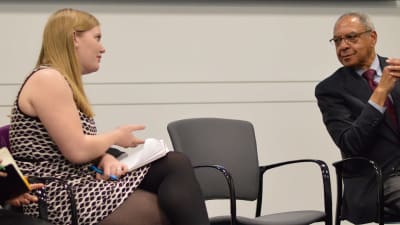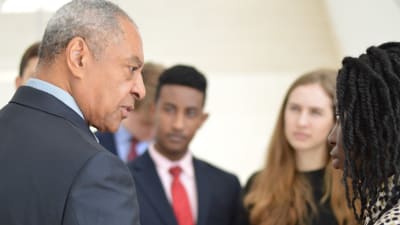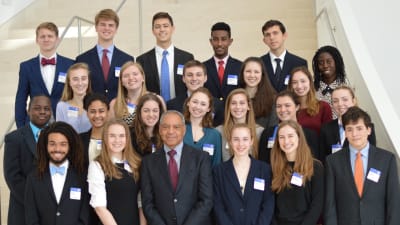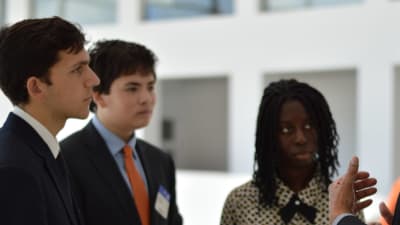Israelis, Palestinians, and SEGL
The Israeli-Palestinian dispute is arguably the most intractable of our times. The disagreement is so fraught with anger and misunderstanding that many question every word, every historical event, every intention presented. And yet the problem remains, and will remain until we have leaders–perhaps including a few SEGL graduates–who conquer it.
This week, our students heard (and discussed) three key perspectives from three key leaders whose work continues to impact the conflict.
Our students began with SEGL’s account of Israeli-Palestinian history: the competing promises of T.E. Lawrence and the Balfour Declaration, the competing boundaries in 1948, 1967, and today, the competing visions for the future within Israel and within the Palestinian leadership. This historical account makes every attempt to be unbiased, but we also told the students that many observers on both sides would want to add, subtract, or edit each PowerPoint slide we shared. Skeptical eyes and ears are a must in this area.
(We also underlined another SEGL truism: if, after a case study, you want to hear a view different from the ones presented, say something! If there is enough interest, we can often arrange for a supplementary speaker later in the semester; if there is not enough interest, any interested student can set up her or his own meetings during a free period.)
On Wednesday, we traveled to the Woodrow Wilson Center (a leading DC think-tank) to meet with the noted expert (and advisor to six Secretaries of State) Aaron David Miller. Miller helped provide context for the current status of the conflict and answered questions about his time as a lead negotiator for the U.S. (for example, at the 2000 Camp David II discussions). He is fond of a memorable piece of advice drawn from John F. Kennedy that SEGL students would do well to consider: when asked about his political leanings, Kennedy said “I am an idealist without illusions.”
We then visited the Israeli Embassy in DC, where we met with Aaron Sagui, the Embassy’s lead spokesperson. Sagui was able to present an Israeli-centric view of not only the conflict, but the upcoming Israeli parliamentary elections, the relationship between U.S. President Barack Obama and Israeli Prime Minister Benjamin Netanyahu, and U.S.-Iran nuclear negotiations.
On Friday we met with Ghaith al-Omari, a former top advisor to Palestinian leader Mahmoud Abbas and a negotiator (across the table from Aaron David Miller) in the 2000 Camp David peace talks. Al-Omari, who now works with the American Task Force on Palestine and the Washington Institute for Near East Policy, shared stories and strategies from his time as a negotiator. For example, it is not enough to negotiate so that your side “wins.” You must also ensure that the speech your “opponent” gives to her people allows her to claim victory as well–otherwise, the deal will fall through.
As you might expect, the three viewpoints were quite varied, and many students reported feeling convinced by each speaker’s strong arguments. In a discussion that followed, several noted how valuable it was to hear the side they had understood less.
Learning how to ask tough-but-respectful questions and how to discuss the most deeply-felt of issues is an essential part of leadership, and it is an essential part of an SEGL education. We’re proud of how our students handled this week (and they continue to discuss it over dinner and over weekend fun) and looking forward to next week’s challenge: the death penalty.
















